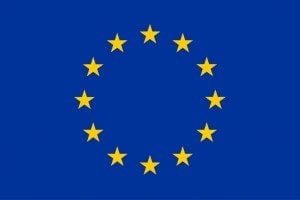
Countering Online Antigypsyism and Cyberhate (COACH)
Duration: 1 December 2022 – 30 November 2024
Communities: Roma in Slovakia, Roma in Bulgaria
What is this programme about?
This programme aims to counter illegal online hate speech against Roma in Slovakia and Bulgaria by supporting the development of balanced narratives online and promoting critical thinking in internet users. We are raising awareness about Roma rights and realities by disseminating accurate and positive narratives among internet users in the form of short films, infographics, photo stories, online articles and social media campaigns. We also aim to strengthen the knowledge of civil society organizations, activists and decision-makers about the scope of online hate speech and antigypsyism, and the best ways to counter it. Importantly, the programme aims to enhance collaboration between our partners and decision-makers when identifying weaknesses in the current regulatory framework and promote more efficient ways of addressing online hate speech.
Why are we delivering this programme?
Online hate speech against Roma limits their online participation, an increasingly essential aspect of accessing basic services and participating in society. Furthermore, cyber hate plays a significant role in normalizing antigypsyism and discriminatory stereotypes. Individuals can more easily mask abuse, in anonymity and physical distance, and racist movements are exploiting ‘virality’ within social media to gain traction and legitimacy in wider society.
There is very little data on online antigypsyism, and what is available is not well integrated into mainstream online hate speech measures. The number of incidents, trends, triggers, perpetrators, methods of intervention or the efficiency of the current regulatory framework to counter it, are all key areas where more data needs to be collected.
In 2019, the European Union’s (EU) communication on the implementation of member states’ National Roma Integration Strategies stated that Roma social disparity in the EU remains high. Further, it highlighted that member states should have stronger programs addressing antigypsyism and targeting awareness raising to counter discrimination and intolerance. Simultaneously, as far-right groups and political parties increase in prominence, and nationalistic and xenophobic discourses grow, recent years have seen hate speech against Roma in Europe rise. Slovakia and Bulgaria register some of the highest percentages of Roma populations in the EU, and both are experiencing a resurgence of the far-right.
In Slovakia, it is generally considered more acceptable if politicians speak negatively, rather than positively, about Roma. In Bulgaria, Roma represent the most ‘hated’ minority. Sentiments against the right to language, culture, traditions and life of Roma are prevalent among young people who mainly receive their information from social media.
What are we doing?
- Running counternarrative campaigns to raise awareness among internet users, especially youth, through the promotion of tolerance narratives online. We aim to reach 400,000 internet users and encourage them to deliver their own counter-narrative campaigns against online antigypsyism.
- Gathering data and producing evidence about social media responses to online hate speech, with a focus on online antigypsyism.
- Presenting and disseminating the key findings and recommendations of our research, including a national conference and a meeting at the European Union level.
Who are our partners?
Center for Interethnic Dialogue and Tolerance (Amalipe) is a Roma-led non-governmental organisation working to ensure equality and integration of Roma in Bulgaria. The organization plays a central role in organizing the Roma civic movement and advocating for Roma integration within state institutions.
Human Rights Institute (HRI) is an activist organization that aims to promote access to all human rights for many minorities. The main activities include fighting extremism, LGBT rights, women’s rights, and economic, social and cultural rights. Their main focus is campaigning and the sensitisation of the general public.
Who is funding this programme?
This programme is funded by the European Union.
Find out more
Similar programmes to COACH are being implemented in Slovakia and Slovenia by MRGE and its local partners: Promoting Roma Equality in Slovenia and Slovakia (PRESS) alongside Poradna and EPEKA Association, and in Hungary and Serbia with Improving access for Roma communities to employment opportunities in the hospitality industry alongside Phiren Amenca and Praxis. MRGE has also recently completed Roma Equality through Increased Legal Access (REILA) alongside Praxis and Idetartozunk Egyesület in Hungary and Serbia and Equality for Roma through Enhanced Legal Access (ERELA) alongside Amalipe and the Information Legal Center in Bulgaria and Croatia.
MRG has carried out similar programmes which have focused on the human rights of Roma in North Macedonia, Central Europe, Ukraine and Türkiye.
 Still from the short video ‘The power of memes in Slovakia’ produced during the Freedom from Hate programme as part of a video series on countering online hate speech against Roma in Eastern Europe. Courtesy of Amalipe and Minority Rights Group.
Still from the short video ‘The power of memes in Slovakia’ produced during the Freedom from Hate programme as part of a video series on countering online hate speech against Roma in Eastern Europe. Courtesy of Amalipe and Minority Rights Group.
 This content represents the views of Minority Rights Group only and is its sole responsibility. The European Union does not accept any responsibility for the use that may be made of the information it contains.
This content represents the views of Minority Rights Group only and is its sole responsibility. The European Union does not accept any responsibility for the use that may be made of the information it contains.